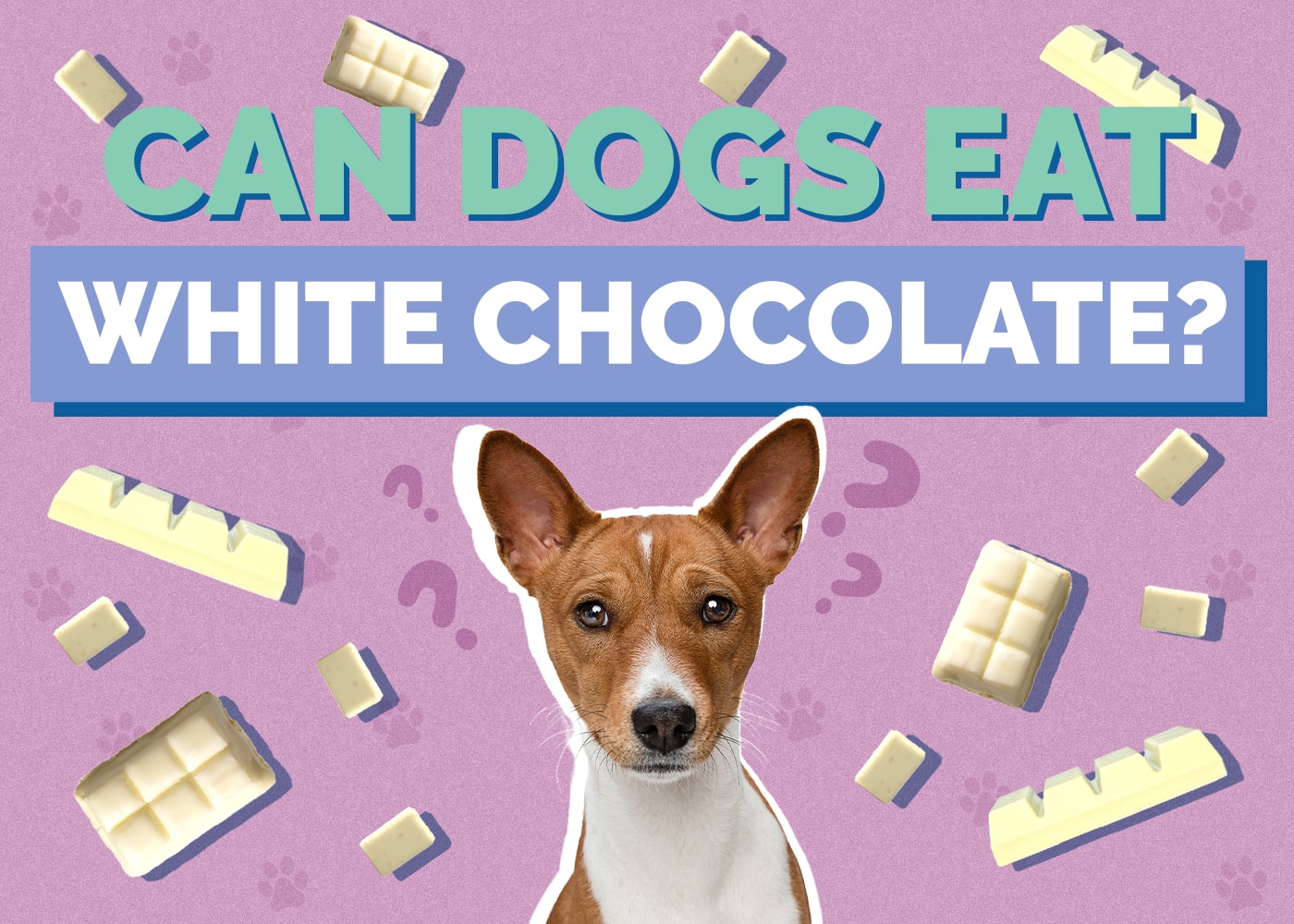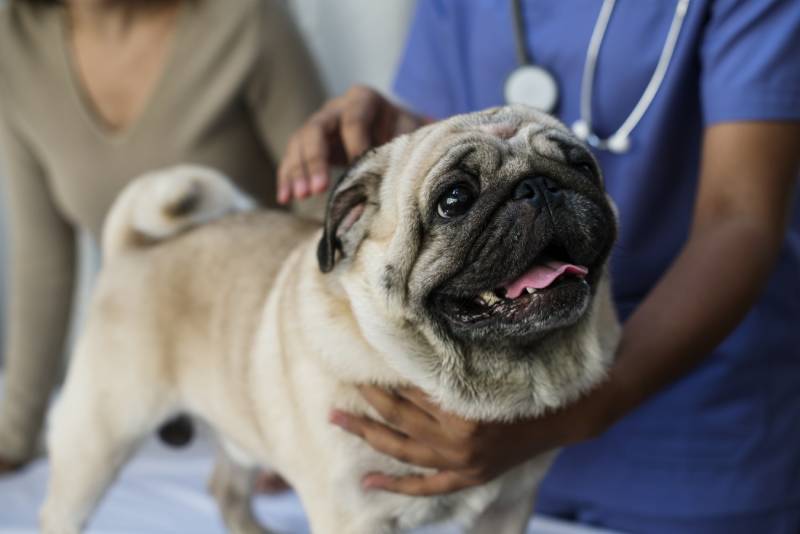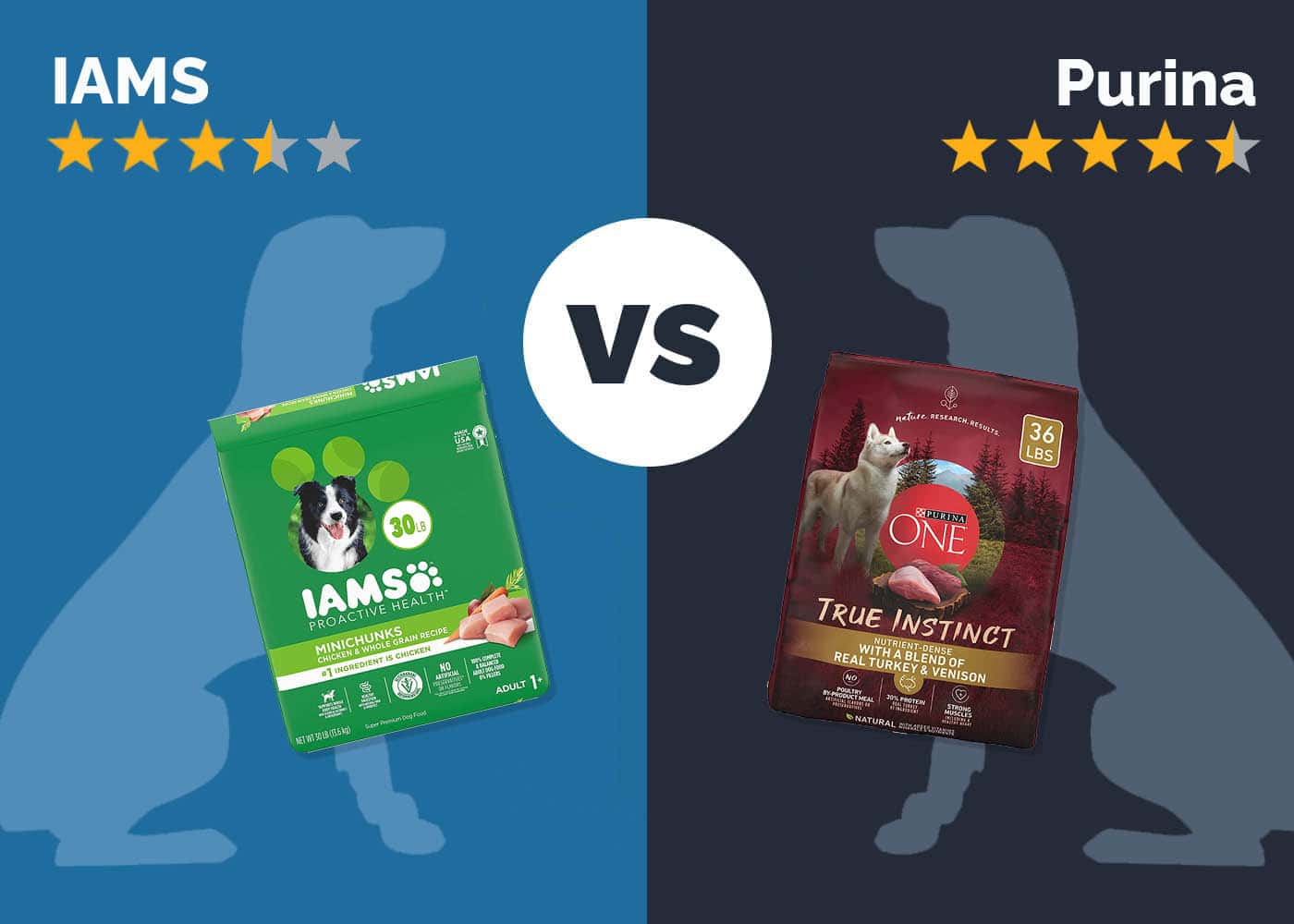Can Dogs Eat White Chocolate? Vet-Reviewed Safety Guide & FAQ

Updated on

Click to Skip Ahead
Most pet owners know chocolate harms dogs, but is it the same for white chocolate, since it differs from milk and dark chocolate? While the white chocolate is made from cacao butter rather than the bean, similar ingredients still make it hazardous for your dog.
White chocolate is not as toxic as milk or dark chocolate. However, the toxic ingredient theobromine can still be found in white chocolate and should not be fed to your dog. On the plus side, that means more chocolate for you! Read on to learn what you need to know about white chocolate, why your dog shouldn’t eat it, and what to do if your dog gets into your stash.
Can Dogs Eat White Chocolate?
No, dogs shouldn’t eat white chocolate or any chocolate. Even though white chocolate is not as toxic as milk or dark chocolate, that doesn’t make it harmless. Theobromine is an ingredient in white chocolate, and while your dog would have to have a large portion of white chocolate for it to have toxic effects, there are other ingredients in it that dogs shouldn’t have, such as sugar.

Why Should Dogs Never Eat White Chocolate?
The primary reason that dogs shouldn’t eat white chocolate is the trace amount of theobromine. Unlike humans, dogs cannot metabolize this ingredient, so toxic levels can quickly build up. Dark and milk chocolate contain higher levels of theobromine, 40–130 milligrams (mg) per ounce, while white chocolate only contains 0.25 mg per ounce. This quantity is significantly lower but can still be dangerous, and we recommend not even taking the chance. White chocolate is particularly unsafe for older dogs and dogs with underlying health conditions.
Furthermore, white chocolate includes high levels of fat and sugar, which can cause digestive issues and an upset stomach. Ingesting too much white chocolate could cause diarrhea, vomiting, and pancreatitis.
What Should I Do If My Dog Ate White Chocolate?
White chocolate doesn’t contain as much theobromine as milk or dark chocolate, so the chances of it being toxic to your dog are pretty low. However, that depends on how much chocolate your dog eats. Toxic doses of theobromine are reported to be as low as 20 mg per 35 ounces.
Toxic doses of theobromine are reported to be as low as 9 mg per pound of body weight of the dog for mild signs and 18 mg of theobromine per pound of body weight of the dog for severe signs, which include high blood pressure, heart arrhythmias, and a racing heart. At 27 mg of theobromine per pound of body weight, a dog might suffer from tremors, twitching, and seizures. Fatal poisonings are generally seen in dogs that consume over 40 mg of theobromine per pound of body weight. So, if you do the math, you can calculate that if your average-size dog had a small square of white chocolate, they would be unlikely to suffer from intoxication.
However, certain variants are in place and dogs have different sensitivities, so as a responsible owner, you should still monitor them for signs of chocolate poisoning and stomach issues. You also need to consider the effects of the other ingredients found in white chocolate.
If your dog eats white chocolate, the safest and most responsible thing to do is to call your vet immediately because signs of chocolate poisoning can take several hours to develop. Your vet knows best and you shouldn’t take any chances. You will need to tell your vet how much your dog ate and the weight and age of your dog. This will help them determine the severity of the situation.
Most dogs will indulge in any food if given the chance, so if your dog has ingested a harmful amount of white chocolate, your veterinarian may induce vomiting as soon as possible, which is another reason we recommend calling your vet straight away.

FAQ
Can My Dog Eat Sugar-Free White Chocolate?
Sugar-free white chocolate is still not safe for dogs, even more so because there is a possibility that it contains xylitol to replace the sugar. Xylitol is toxic to dogs and can be life-threatening.
Can My Dog Eat Treats Made With a Little White Chocolate?
If your dog consumes treats such as a cupcake made with a little white chocolate, the chances of poisoning are very low. We understand that dogs can be sneaky and may find a way to nab a cupcake off the table or steal scraps off your plate. They will most likely be fine, but you should monitor your dog for any signs of stomach upset.

How Much White Chocolate Can a Dog Eat?
You should not feed your dog any amount of white chocolate, other chocolate, or candy.
What Kind of Chocolate Can Dogs Eat?
Dogs shouldn’t eat chocolate, but a plant called carob tastes similar to chocolate and is often used as a cocoa alternative. It is safe for dogs because it doesn’t contain any caffeine or theobromine.
Conclusion
While your dog may be okay if they sneak a little piece of white chocolate off your plate, dogs shouldn’t eat any chocolate. White chocolate contains less theobromine than milk or dark chocolate, but it is still present and is not worth the risk. White chocolate is also high in fat and sugar, which is unhealthy for your pet. If your dog ingests white chocolate of any amount, it is best to contact your vet immediately. If your dog has a sweet tooth and you want to give them the pleasure of a similar taste, you could use carob instead, since it is a non-toxic replacement that mimics the taste of chocolate but lacks the risks.












